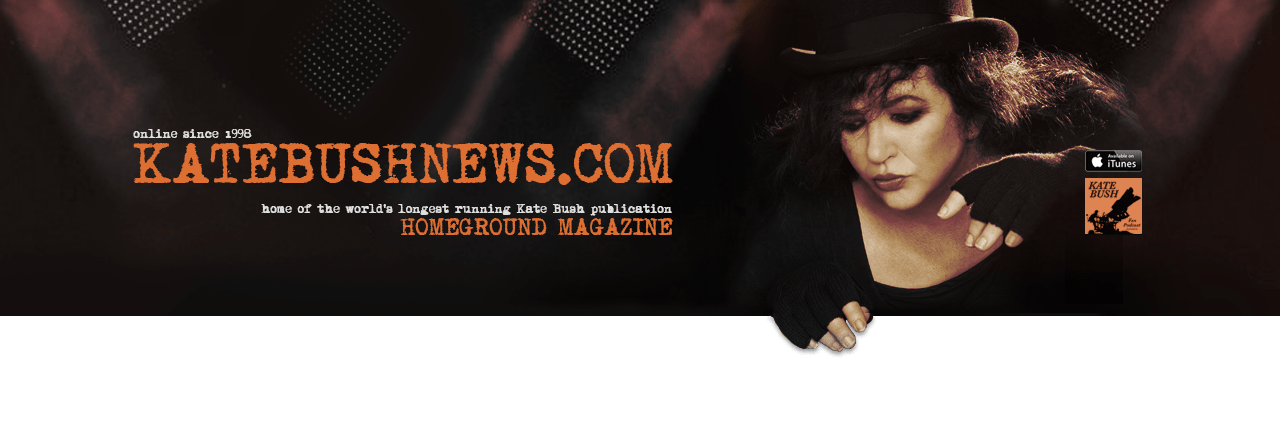As if fans didn’t have enough to celebrate this weekend with the King Of The Mountain video, Kate’s new album has received a glowing review from The Observer newspaper in the UK. Jason Cowley writes: “Twelve years is a long time to wait for a new record from any artist, even from one as consistently inventive as Kate Bush, but at least Aerial offers value. It’s a 14-track double album, and the more experimental of the two records is ‘A Sky of Honey’. It begins not with music but with the sound of birdsong, the wind in the trees and the voice of a child calling for her parents. What follows is a suite of seven unashamedly romantic and interconnected songs taking us on a long day’s journey into night and then on through to the next morning when birdsong is heard once more and the whole cycle starts all over again…’A Sky of Honey’ is music of pagan rapture – songs about acts of creation, natural or otherwise; about the wind, rain, sunlight and the sea. Sometimes it is just Kate alone at her piano, her voice restrained. Sometimes, as on the outstanding ‘Sunset’, she begins alone and softly, but soon the tempo quickens and the song becomes an experiment in forms: jazz, progressive rock, flamenco. There are weaknesses. At times, Bush can be too fey and whimsical, especially on ‘Bertie’, which is about the joy of motherhood, or on ‘Mrs Bartolozzi’, a rhapsody to nothing less than a washing machine: ‘My blouse wrapping itself around your trousers… slooshy sloshy/ slooshy sloshy.’ And the bold, musically adventurous second album is a little too insistent in its ‘hey, man’ hippyish sensibility, with Kate running freely through the fields or climbing high in the mountains…
‘What kind of language is this?’ Kate Bush sings, self-interrogatively, on the title track, the last of the album. It’s a good question, to which she offers a partial answer on ‘Somewhere in Between’, which in ambition and content is where most of the songs on this album are suspended – somewhere in between the tighter, more conventional structures of pop and the looser, less accessible arrangements of contemporary classical and the avant-garde; somewhere, in mood and atmosphere, between the lucidity of wakefulness and the ambiguity of dream; between the presumed innocence of childhood and the desire for escape offered by the adult imagination; between abstraction and the real. Even when she escapes her wonderland to write songs about actual figures in the known world, she remains attracted to those figures such as Elvis (‘King of the Mountain’, the album’s first single) or Joan of Arc (‘Joanni’) that, in death as indeed in life, have a mythic unreality. So, again, what kind of language is this? It is ultimately that of an artist superbly articulate in the language of experimental pop music. But it is also the language of an artist who doesn’t seem to want to grow up. Or, more accurately, who has never lost her child-like capacity for wonder and for pagan celebration and who, because she is sincere and can communicate her odd and unpredictable vision in both words and through sumptuous music, occupies a cherished and indulged position in the culture. There is no one quite like her, which is why, in the end, we must forgive her excesses and eccentricities. We are lucky to have her back.” Read the full review at The Observer site here

Leave a Reply